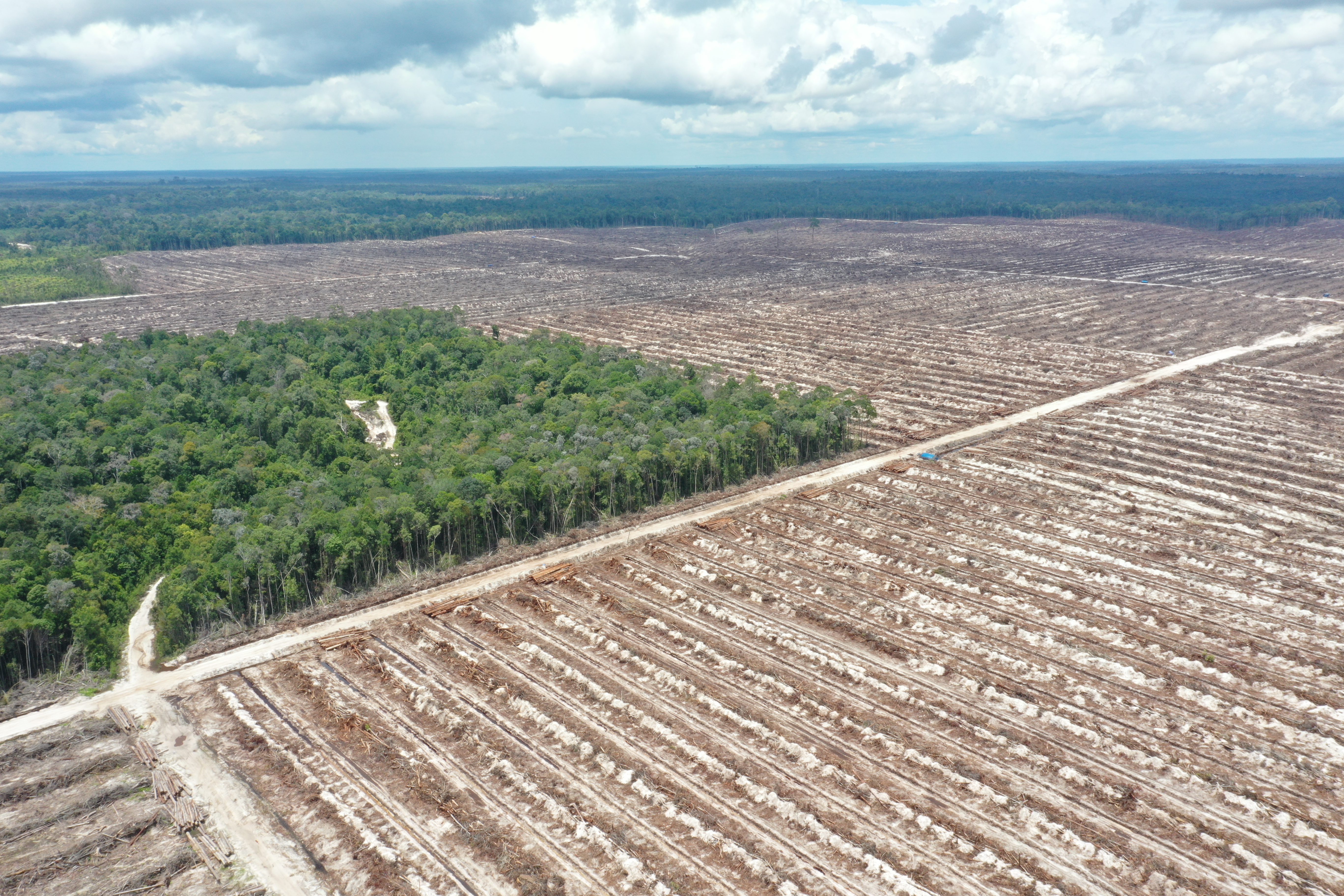 Source: Fajar Sandhika / Auriga Nusantara, Aerial Photo of PT Industrial Forest Plantation, (1°30’32.84”S – 114°11’12.21”E).
Source: Fajar Sandhika / Auriga Nusantara, Aerial Photo of PT Industrial Forest Plantation, (1°30’32.84”S – 114°11’12.21”E). Indonesia’s Pulp Industry, Deforestation Surge, and Domino Greenwashing Exposed.
 Source: Fajar Sandhika / Auriga Nusantara, Aerial Photo of PT Industrial Forest Plantation, (1°30’32.84”S – 114°11’12.21”E).
Source: Fajar Sandhika / Auriga Nusantara, Aerial Photo of PT Industrial Forest Plantation, (1°30’32.84”S – 114°11’12.21”E). A collaborative investigation uncovers a troubling reality of greenwashing practices through tax havens in the supply chain of wood pulp and viscose for textiles used by fashion industry.
The wood pulp industry, once under scrutiny for deforestation in Sumatra and Kalimantan, pledged to halt such activities in 2013 and 2015. However, recent Trase analyses using data from The TreeMap reveal a concerning trend: wood-pulp-driven deforestation spiked nearly fivefold between 2017 and 2022.
The global demand surge for wood pulp and its derivatives: viscose for clothing and paper has spurred a significant expansion of Indonesia’s pulp sector. Indonesian conglomerates APP and APRIL/RGE, account for most of the exports and production, directing nearly three-quarters of Indonesia’s pulp exports to China. This growth has catalysed the establishment of new pulp capacity in Indonesia, resulting in a remarkable 46% production surge over the past eight years with more capacity expansion on the horizon.
Moreover, APRIL/RGE currently supply a quarter of the world’s viscose including the “environmentally friendly” form of viscose, Lyocell, to the fashion industry through its Chinese subsidiaries Asia Symbol and Sateri, and Indonesian company Asia Pacific Rayon. Their clients (as of 2020) include renowned brands like Marks and Spencer, Esprit, H&M, Uniqlo, and Adidas.
Wood consumption surged in tandem with pulp production, reaching over 46 million cubic meters in 2022. Fast-growing eucalyptus and acacia plantations covering 2.9 million hectares in Sumatra and Kalimantan in 2022, the size of Belgium, have expanded by 30% in the last eight years. This expansion, while meeting production needs by pulping natural timber to wood pulp and chip mills, converted one million ha of forest to monoculture plantations, contributing significantly to the decline — 10% of total primary forest cleared from 2001 to 2022) — of carbon-rich lowland and swamp jungles of Indonesia.
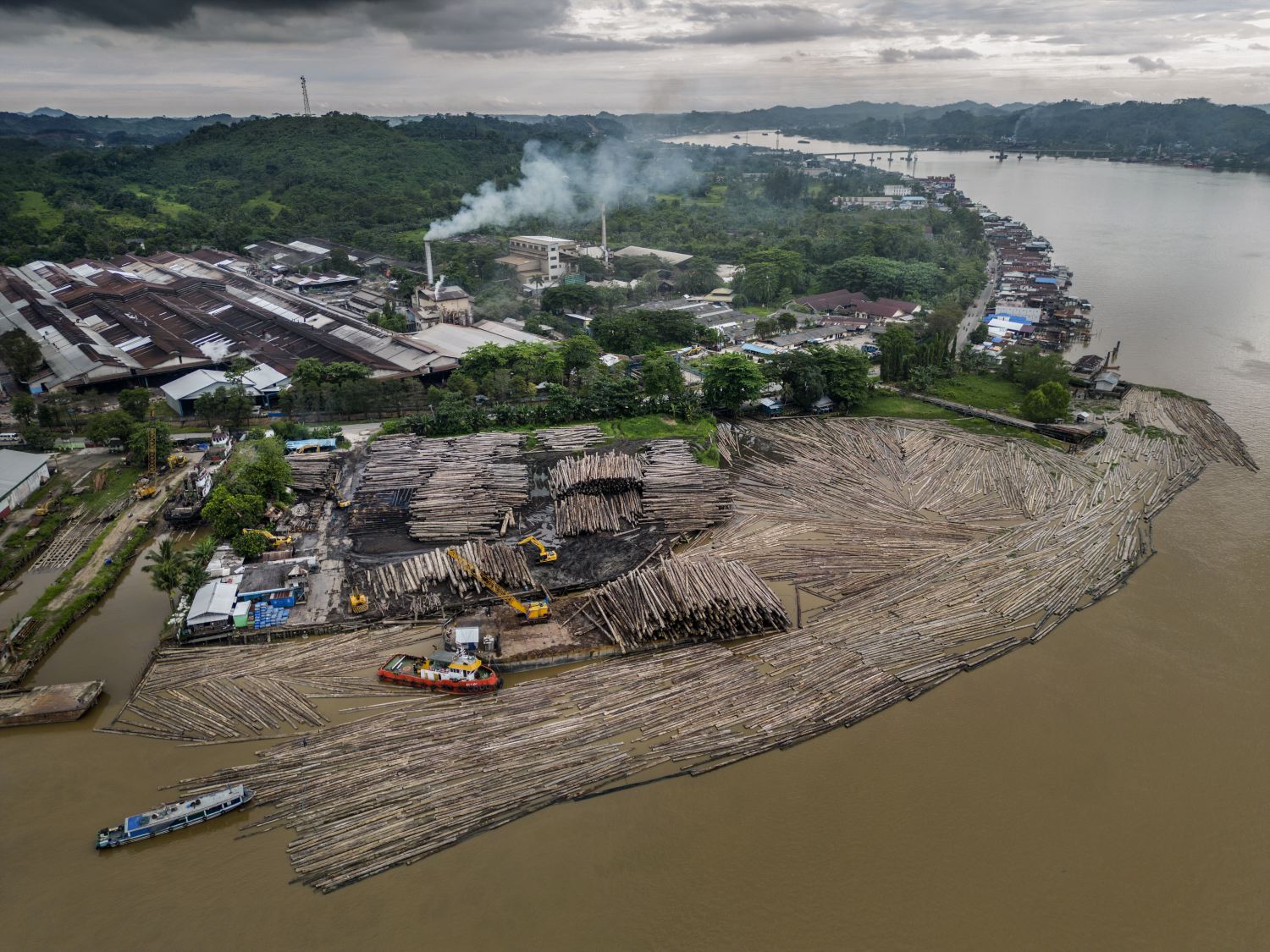
From 2001 to 2022, APRIL and APP and their direct suppliers cleared 805,000 hectares of forest, including 567,000 hectares of peat-samp forest, 80% of the total pulp-driven deforestation (1 Mha) in Indonesia, and nearly 20% of total Indonesian peat-swamp forest destruction.
Decades of peat-swamp clearing and draining for pulp and paper plantations in Indonesia have not only destroyed the habitat of forest-dependent species but also turned vast areas of carbon sink swamp forests, into fire-prone and carbon bomb wastelands.
Fires on drained and deforested peatlands often burn uncontrolled through established plantations, degraded lands, and forests emitting unprecedented quantities of greenhouse gas and toxic smoke into the atmosphere, with negative impacts on wildlife, human health, transport, tourism, and economic activity in the Southeast Asian region.
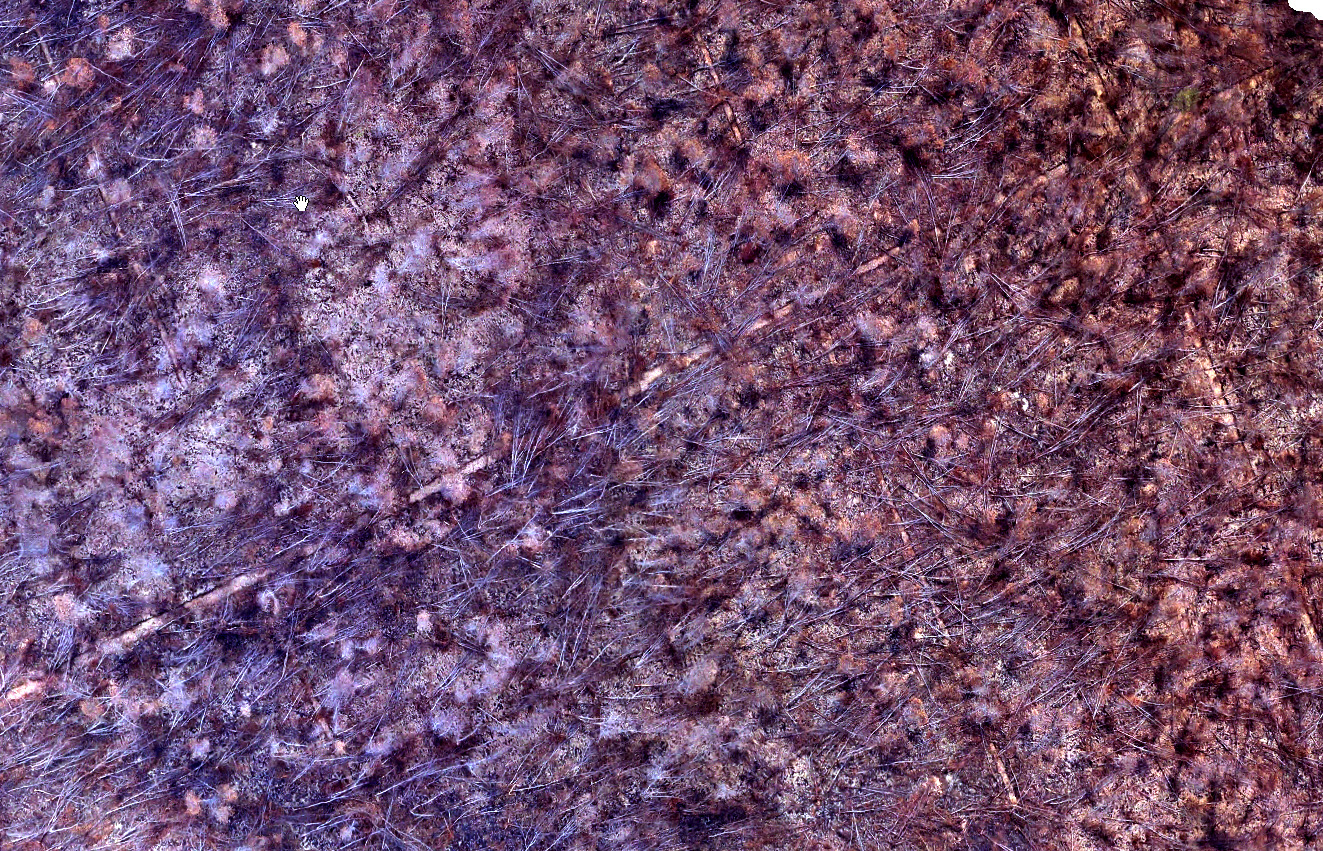
During 2015’s El Niño-induced drought, fires burned an estimated 2.6-4.5 Million hectares of land across the Indonesian Archipelago. The 2015 fires emitted 1.2 billion tons of CO2 equivalent (or 884 million tons of CO2), representing half of Indonesia’s total emissions in that year.
In the capital city of Central Kalimantan, daily average particulate matter (PM10) concentrations often reached 1000 to 3000 µg m-3, qualified as amongst the worst sustained air quality ever recorded worldwide. More than 500,000 people were affected by acute respiratory infections in the aftermath of the fires across the region, and between 12,000 and 100,000 related premature deaths were estimated regionally.
Between 2015 and 2022, Trase estimated industrial concessions growing wood for pulp in Indonesia emitted an average annual total of 103.4 million tonnes of CO2 equivalent.
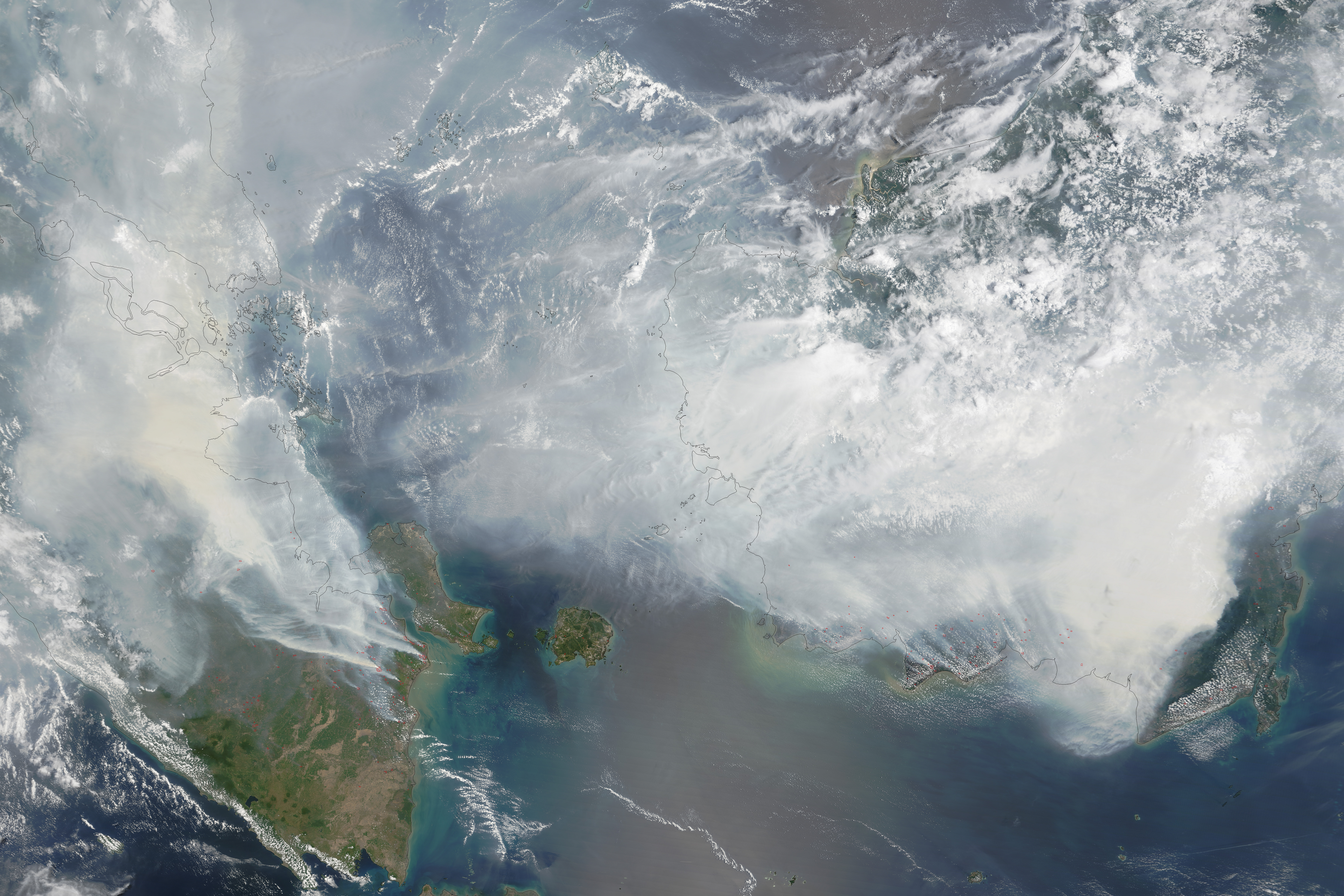
The resurgence of deforestation in Indonesia’s pulp sector underscores a distressing reversal of prior progress, underscoring the need for urgent measures to ensure traceability and accountability in wood pulp-derived products, essential for paper, packaging, and viscose and home goods industries.
Technological progress, fueled by initiatives such as Trase and Nusantara Atlas, presents a viable method to autonomously track companies’ efforts in conserving natural forests. Yet, the efficacy of these tools is in doubt when ownership of plantations and production remains unclear.
Consider the case of today’s largest forest destroyers among industrial wood pulp and fibre plantations in Indonesia — PT Industrial Forest Plantation and PT Mayawana Persada. These two companies have cleared 40,000 ha of prime orangutan forest habitat from 2019 to 2022, vividly visible in satellite animations below.
According to a recent investigation by journalists from Narasi TV, and by Greenpeace, Auriga Nusantara, Environmental Paper Network, Woods&Wayside International, and Rainforest Action Network these firms are linked to RGE via shadow and shell companies, some registered in international tax havens. Using tracking devices, the journalists determined that the forest cleared and pulpwood trees grown in PT Industrial Forest Plantation’s concession are processed by Asia Symbol, which in turn supplies Pulp to Sateri to produce Lyocell used by the fashion industry.
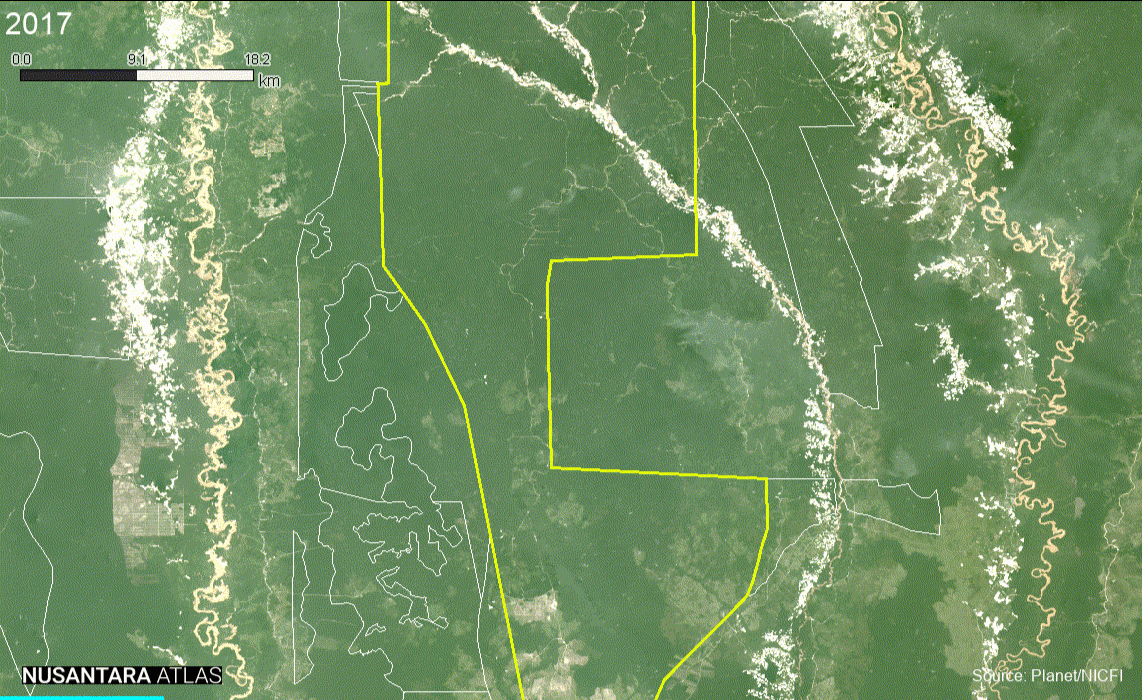
Despite mounting evidence of deforestation in RGE’s supply chain, buyers like Marks and Spencer, Esprit, H&M, Uniqlo, and Adidas remain quiet. Ironically, some of these brands have also committed to sustainability and zero deforestation standards.
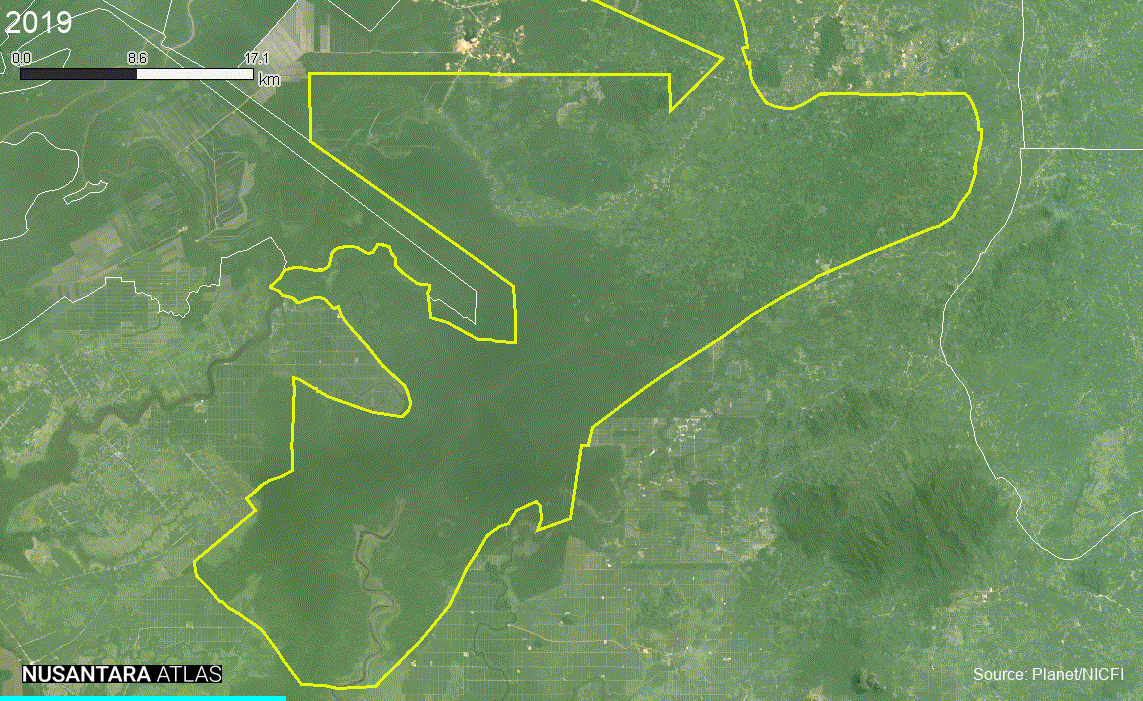
This phenomenon, known as the “greenwashing domino effect,” happens when one company’s deceptive environmental claims set off a sequence that impacts its associates. Ultimately, consumers bear the brunt, while the credibility of international brands and their financial standings may suffer due to doubts raised about their commitment to sustainability and transparency.
In shedding light on the intricate web of connections between PT Industrial Forest Plantation, RGE, and their respective operations, the investigations by Narasi TV and their collaborators uncover a troubling reality of greenwashing and illegitimate practices.
This revelation highlights a critical issue: pulpwood companies leverage tax havens to obscure ownership, thereby eroding the credibility of corporate and certification commitments. This practice extends to the oil palm industry. Geck Project journalists have exposed the reality of primary forest destruction by First Resources, a large palm oil grower branding its produce as ‘sustainable’ RSPO-certified oil.
The use of tax havens to veil ownership poses a fundamental challenge to the efficacy of corporate and certification policies. These revelations underscore the urgent need for robust measures. The impending European Union Deforestation Regulation presents an opportunity — a legal framework to hold companies accountable for forest loss within their product supply chains. Data transparency initiatives like Trase and the Nusantara Atlas will be at the forefront of providing up-to-date and actionable information for its implementation.
The TreeMap endeavours to protect tropical forests through scientific research and advanced monitoring platforms. We are cartographers, remote sensing engineers, software developers, and field investigators. We empower civil society with the tools to detect deforestation in real-time and ensure what happens on the ground is fair, transparent, and democratic. We build systems that check the deforestation footprint of agribusinesses in tropical forests to ensure sustainable production. Our work is based on the premise that no one wants food and other products to be the cause of forest destruction.